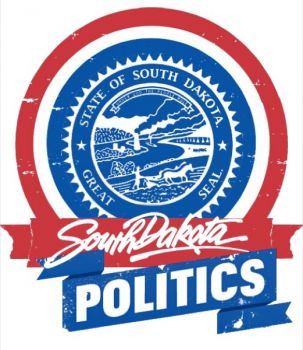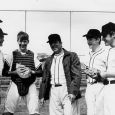The Gift of South Dakota
Subscriptions to South Dakota Magazine make great gifts!
Subscribe today — 1 year (6 issues) is just $29!
Primary Problems
Jan 21, 2015
All we wanted to do was make it easier to check petitions for cheating. Now we've got to change the whole election calendar!
Secretary of State Shantel Krebs has delivered to her old colleagues in the South Dakota Legislature a package of bills intended to reform the circulation and certification of nominating petitions. The goal of these reforms is to provide for better review of nominating petitions for valid signatures. Citizen challenges of nominating petitions last year resulted in criminal charges against two South Dakota candidates for U.S. Senate.
To increase petition scrutiny, Secretary Krebs and the state Board of Elections propose this plan:
- Require the Secretary of State to review a random 5 percent sample of signatures on each nominating petition for statewide office.
- Move the petition circulation period one month earlier, starting December 1 and ending the last Tuesday of February.
- Repeal the registered-mail/postmark exception to the submission deadline and require that all petitions be in the hands of the Secretary by the deadline.
- Require court challenges to petitions be filed by the second Tuesday of March.
- Require judges to hear petition challenges before other cases.
Requiring the Secretary of State to review petitions is easy; the SOS already carries out the random 5 percent sample review on the much larger ballot measure petitions. Making time for that review is the trick. Under the current calendar, there are about three weeks between the time the Secretary gets petitions (less for those last-minute mailers) and the date she must print and ship primary ballots for early voting. Federal law sets that print deadline to ensure 45 days for military absentee voting; we can't change that date.
If we want more time for the Secretary and the court to review petitions, we have to move the petition circulation period earlier. But look at the problems that arise from that move:
- Candidates need to commit a month earlier to running, meaning more citizens (perhaps more deliberate, thoughtful citizens) will be deterred from running.
- Circulators trade March for December, which, between weather and holidays, is a much worse month to go door-to-door and beg neighbors for signatures.
- Petition crunch time comes during the Legislative session, when candidates and the politicos who would scrutinize and challenge petitions are still focusing on bills and debates in Pierre.
The difficulties created by the earlier circulation period may outweigh the greater scrutiny the Secretary and the courts can give to petitions.
So what if we moved petition circulation later? Imagine candidates could start circulating petitions on March 15, after the Legislature gavels out, and had until the end of May to submit? More daylight, warmer temps, and less political distraction would make circulating easier for more candidates. Candidates would get to see the final bills and budget passed by the Legislature before deciding whether they need to run to throw some bums out. And the Secretary of State, citizen watchdogs, and the courts would still have time to properly review petitions for violations.
We would have to make just one other change... a pretty big one: we'd have to move our primary to the middle of summer.
But hey, would that be so bad? South Dakota's political parties don't have to name their candidates for Secretary of State, Attorney General, and four other statewide offices until early August. Why not bless candidates for Governor and Legislature with the same shorter campaign season?
Remember, this conversation started with the simple desire to look at petitions more closely. But we can't change one element of the election process without bumping lots of other moving parts. Such is the challenge of crafting the optimal democracy.
Editor's Note: Cory Heidelberger is our political columnist from the left. For a conservative perspective on politics, please look for columns by Dr. Ken Blanchard on this site.
Cory Allen Heidelberger writes the Madville Times political blog. He grew up on the shores of Lake Herman. He studied math and history at SDSU and information systems at DSU, and has taught math, English, speech, and French at high schools East and West River.










Comments